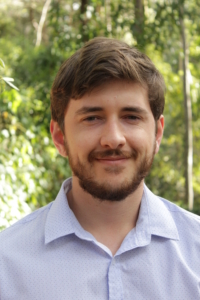Date & Venue
Wednesday, 17 October 2018, 02:00PM
EF122
Abstract
Conventional high-speed amplitude demodulation techniques are compared and shown to be incompatible with multifrequency atomic force microscopy (MF-AFM), due to a lack of sensitivity to multiple frequency components. Novel model-based methods including a Kalman and Lyapunov filter are proposed, which alleviate this issue while maintaining very high bandwidths. Additionally, mass-sensing through microcantilever resonance frequency tracking is discussed. This sensing method involves coating a microcantilever surface with a reagent, such that it absorbs target molecules. The theory, potential benefits and preliminary designs towards the final goals of a MEMS gas sensor are shown.
Speaker Biography
David M. Harcombe graduated from The University Of Newcastle, Australia with a Bachelor of Engineering (Electrical) (Honours Class 1) with the University Medal in 2016. He is currently a PhD student within the Precision Mechatronics Lab, located in the School of Electrical Engineering and Computing, The University of Newcastle. His research areas include high-speed AFM and piezoelectric cantilever gas sensors.
